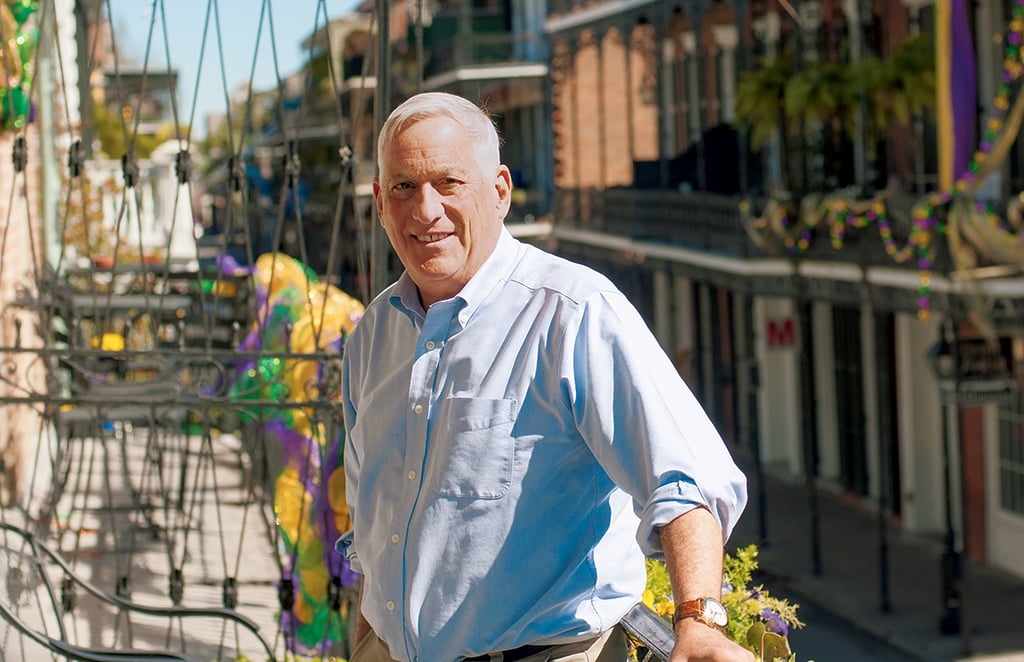As a kid growing up in New Orleans, I was magnetically attracted to Washington. A student-council type, I went to Capitol Hill as a high-school intern for our local congressman, Hale Boggs, the House majority leader. Part of my job was to bartend at his hideaway office, where I would listen in as a bipartisan group including Carl Albert and Gerald Ford, along with an occasional senator, cut deals. Most members didn’t fly home on weekends back then, and Washington was filled with a nonpartisan camaraderie.
A few years later, I joined Time magazine’s Washington bureau, having arrived from New Orleans on a motorcycle. (It was a scrawny Honda 125, something a student-council type rather than a real biker would ride.) I’ve lived in Washington and New York off and on ever since, most recently in Georgetown for the past 14 years.
Washington is a delightful city, from the quaint cobblestone streets of Georgetown, where I loved to walk, to the vibrancy of the U Street corridor, where new restaurants and clubs crop up every week. For those of us who love ideas and policy, there are fascinating experts to meet and scintillating dinners to attend. It’s also a good place to raise kids.
Nevertheless, late in the summer of 2016, I began to think it might be time to return home.
There are many reasons that I started talking to my wife, Cathy, about moving. Rather unexpectedly, we had reached our sixties, and when I looked at the person staring at me from the mirror, I no longer saw the long-haired kid on a Honda 125. If we were going to have another chapter, we had to start writing it now.
I had always kept a foot, and a house, in New Orleans, and I went back for a while to be vice-chair of the Louisiana Recovery Authority following Hurricane Katrina. A few years ago, we bought a place in the French Quarter with a balcony overlooking Royal Street. I felt homesick whenever I was away from New Orleans for long. I missed the sounds of Charmaine Neville wafting from Frenchmen Street, Doreen Ketchens on Royal Street, Charlie Gabriel dropping in on a Preservation Hall set, the mournful long horn blasts of a tugboat rounding Algiers Point at night. And oysters Mosca.
But there was another reason I decided to move home, one that was a bit more philosophical. Even before Donald Trump was elected, I could feel the national political discourse tumbling into partisan polarization, so different from the days when Boggs and Ford worked things out over drinks.
America’s real creativity and competence seemed to be happening more at the local level. Mayors and governors knew they had to get things done. Potholes have no party. Plus, many cities—Austin, Nashville, Pittsburgh, Cleveland, Chattanooga, Columbus, and yes, New Orleans—were enjoying a resurgence based on start-ups and creative economies. It’s something I took pride in when I rode into New Orleans with Steve Case—DC’s most conspicuous tech evangelist—on his “Rise of the Rest” bus tour in 2015, which celebrated such local entrepreneurship. This creative resurgence has even happened in the local community of Washington—a place somewhat separate from the federal power center—where school reform and entrepreneurial start-ups are flourishing.
I began to believe that one way to counteract the national bitterness, and to regain a spirit of American optimism, was to get local. I could have done it in many places, perhaps even by getting involved with community activities in Washington, but it felt more meaningful to do it in my hometown, where I was shaped. I felt it was time for many of us who had moved to Washington in our youth to go back to cultivate our own gardens. A way to fight against America’s dysfunction would be to tend to the locales where the plague had not yet spread. I became a member of New Orleans’s city-planning commission, took a job teaching history at Tulane, and signed up with some local school organizations. My wife has joined the board of the city’s community foundation.
America has many divides in the Age of Donald Trump: the growing gulf between Democrats and Republicans, left and right, urban and rural, multiculturalists and nativists, establishment and outsiders. Less obvious, but also a factor, is a more personal divide that has been noticed by other folks I’ve talked to, such as Hillbilly Elegy author J.D. Vance. On one side are the student-council presidents and strivers who got plucked or propelled from their old communities and who settled in places like Washington, New York, and San Francisco. On the other are their relatives and grade-school friends who, by choice or lack thereof, stayed home. Most of the latter group found success and happiness, often more profoundly than the rootless strivers. But in some quarters there grew, understandably, a resentment at the arrogant coastal elites who thought they knew how to run the world.
Admittedly, this sociological theorizing had little to do with my decision to return to New Orleans. It was mainly the music and the oysters Mosca. I can’t pretend I’m on some romantic look-homeward-angel journey back to a remote community. My return is more self-indulgent than purposeful.
Washington is filled with interesting people, and it even has good places to hear music and eat oysters. But for some of us who moved there long ago, drawn by its power and pomp, at a certain point it makes sense to go home.
This article appears in the December 2017 issue of Washingtonian.













